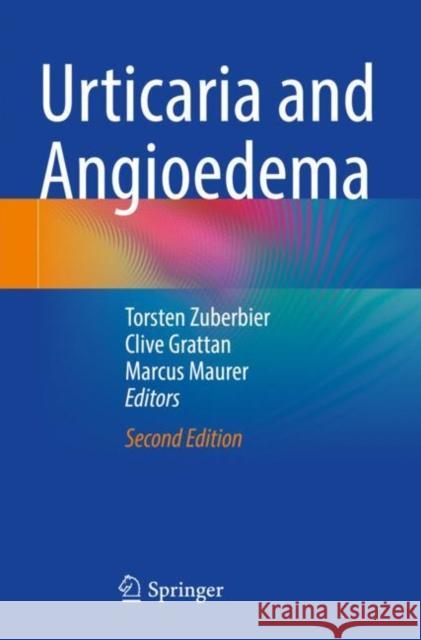Urticaria and Angioedema » książka
Urticaria and Angioedema
ISBN-13: 9783030845766 / Angielski / Miękka / 2022 / 251 str.
Urticaria is one of the most common diseases encountered in dermatology. The fleeting nature of wheals often makes a first diagnosis by both patients and physicians seem easy. The disease itself is of a highly complex nature, with a variety of clinical manifestations ranging from pinpoint sized wheals to extensive angioedema. Further complexities include the diversity of possible eliciting and aggravating factors, the many different clinical subtypes and the therapeutic responsiveness.This second, extensively revised edition includes the indications listed in the most recent international guidelines, provides a practical, comprehensive review of all clinical aspects and causes, and addresses the diagnosis and therapy of different types of urticaria. Specific chapters are devoted to classification, aetiopathogenesis, patient reported outcomes, acute urticaria, chronic urticaria and its comorbidities, angioedema without weals, inducible urticarias, special populations including children, treatment with antihistamines and omalizumab, other interventions and looking ahead to new therapies. This new edition is a must read for dermatologists, allergists, pediatricians and practitioners of all disciplines who want their patients to benefit from cutting-edge diagnostics and treatments.
Urticaria is one of the most common diseases encountered in dermatology. The fleeting nature of wheals often makes a first diagnosis by both patients and physicians seem easy. The disease itself is of a highly complex nature, with a variety of clinical manifestations ranging from pinpoint sized wheals to extensive angioedema. Further complexities include the diversity of possible eliciting and aggravating factors, the many different clinical subtypes and the therapeutic responsiveness.This second, extensively revised edition includes the indications listed in the most recent international guidelines, provides a practical, comprehensive review of all clinical aspects and causes, and addresses the diagnosis and therapy of different types of urticaria. Specific chapters are devoted to classification, aetiopathogenesis, patient reported outcomes, acute urticaria, chronic urticaria and its comorbidities, angioedema without weals, inducible urticarias, special populations including children, treatment with antihistamines and omalizumab, other interventions and looking ahead to new therapies. This new edition is a must read for dermatologists, allergists, pediatricians and practitioners of all disciplines who want their patients to benefit from cutting-edge diagnostics and treatments.











